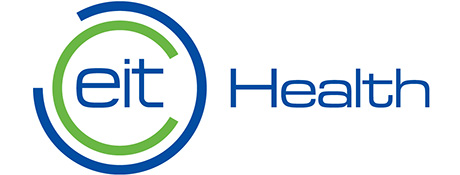InnoLife Consortium Successful in “Healthy Living and Active Ageing” Competition
12. Dezember 2014
Heidelberg and Mannheim chosen as German co-location centre for the InnoLife knowledge and innovation community

InnoLife, a consortium consisting of over 50 leading research institutions, universities and enterprises as well as 90 associated members in nine EU countries, has been selected by the European Institute of Innovation and Technology (EIT) as a knowledge and innovation community for “healthy living and active ageing” (EIT Health). According to the initiators of InnoLife, the project with a total budget of over two billion euros will be one of the largest publicly funded health-sector initiatives worldwide. Over the next seven years, the aim of this international consortium, in which Heidelberg University is centrally involved, will be to assure the development and marketability of innovative products and services conducive to the preservation of lifelong human health and the encouragement of active ageing.
The partners cooperating in the InnoLife consortium include some of the most renowned universities and research institutions in Europe as well as engineering and pharmaceutical enterprises. Among the core partners, German higher-education institutions include – alongside Heidelberg – Munich Technical University and Aachen Technical University, the German enterprises participating include AbbVie Deutschland GmbH and Roche Diagnostics GmbH. The German Cancer Research Centre is one of the associate institutions. In future the European headquarters of InnoLife will be situated in Munich. The German headquarters – the so-called “co-location centre” – will be located in Heidelberg and Mannheim. “Munich and Heidelberg-Mannheim, two of Germany’s leading economic and research regions, have won out in the face of keen international competition,” says Prof. Dr. Thomas Rausch, project coordinator for Heidelberg University.
“Collaboration with all the partners in this knowledge and innovation community packs enormous potential,” comments Dr. Ursula Redeker, spokesperson of the executive board at Roche Diagnostics GmbH and coordinator of the InnoLife consortium. “Connectivity between business, industry and research will be very close, so we can promote the best ideas and projects enabling us to lead healthier and longer lives. I am grateful to Baden-Württemberg’s ministry of science and Bavaria’s ministry of economic affairs for their support and their committed backing for the two InnoLife centres in Germany.”
Baden-Württemberg’s minister of science Theresia Bauer praised InnoLife as a structurally formative factor at the European level. “InnoLife brings together heavyweights from industry and science on a systematic and long-term basis. In the next few years InnoLife will be a force to be reckoned with in the innovative health sector.” She went on to refer to Heidelberg and Mannheim as a good choice for the co-location centre: “The Rhine-Neckar region features outstanding research and excellent teaching in the life sciences alongside globally successful enterprises.” Bavaria‘s minister of economic affairs Ilse Aigner sees the establishment of a knowledge and innovation community (KIC) for “healthy living and active ageing” as a major success, not least because this is the first time that the headquarters of a KIC has been located in Germany.
In future InnoLife will be changing its name to EIT Health. It expects to start up its activities as early as mid-2015 after the joint framework contract with EIT has been signed. After the start-up phase EIT Health will receive about 80 million euros annually from the European Institute of Technology as funding for its cooperative projects. EIT is Europe’s joint cross-border institute of technology, creating what Germany’s federal ministry of education and research refers to as a hitherto unparalleled level of connectivity and cooperation in the “knowledge triangle” education, research and innovation. The thematically organised and market-oriented KICs are designed to develop processes, products and services and to encourage entrepreneurial thinking already at student level.

